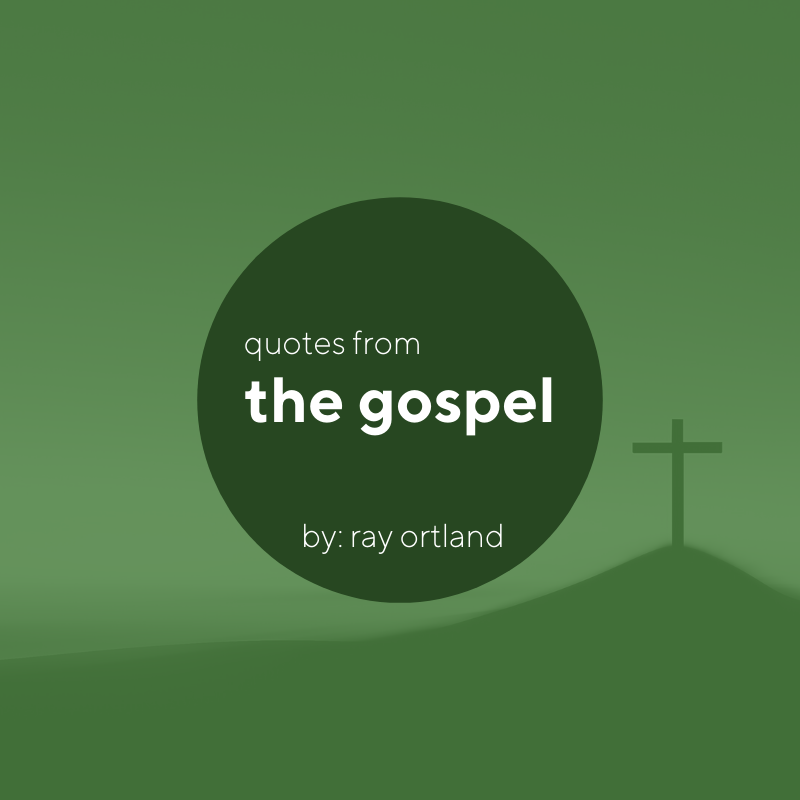Quotes from 'The Gospel' by Ray Ortlund
by Dustin Crowe, Pastor of Discipleship
We recently handed out free copies of The Gospel by Ray Ortlund to go with our sermon series, Shaped by the Gospel. This short book is an excellent resource for not only knowing how to articulate the gospel, but it also stirs up adoration for the gospel and reminds us to apply the gospel. It speaks to not only how the gospel changes us as individuals, but also how the gospel can shape the culture of a church. Here are just a few of my favorite quotes, offered as an enticement to read the book.
“Gospel doctrine creates a gospel culture. The doctrine of grace creates a culture of grace. When the doctrine is clear and the culture is beautiful that church will be powerful. But there are no shortcuts to getting there. Without the doctrine, the culture will be weak. Without the culture, the doctrine will seem pointless.” (21)“Gospel doctrine – gospel culture = hypocrisyGospel culture – gospel doctrine = fragilityGospel doctrine + gospel culture = power” (23)“We didn’t ruin God’s plan; we are his plan, his eternal plan to love the undeserving, for the display of his glory alone.” (42)“Justification clears us legally of guilt before our Judge, but adoption includes us emotionally in the heart of our Father.” (69)Gospel + safety + time. “The family of God is where people should find lots of gospel, lots of safety, and lots of time.” (72)“We either proudly believe that we are too good to be judge, or we proudly believe we are too bad to be saved. So the gospel is a continual surprise, and we need to hear it again and again.” (79)“The gospel gives us more than a place to stand; it also leads us into a path to follow…. There is a way to live ‘in step’ with it. It is a journey into more and more of the endless all-sufficiency of the Lord Jesus Christ. When our churches are open to all that Christ is for us, the gospel message becomes unmistakable and the way to Christ obviously open to all alike.” (89)“those places of deepest shame are where the Lord Jesus loves us the most tenderly.” (117)

